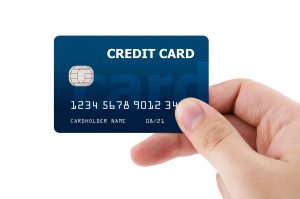Can one smart step today save weeks of delay and extra costs tomorrow?
This short guide helps someone in the country get approvals faster and spend less time and money on follow-ups. It lays out practical requirements like BSN, a Dutch address, valid ID, proof of income, and a Dutch IBAN. It also explains the BKR check and why linking the right bank account matters for smooth monthly payment routines.
Readers will learn how local payment habits — iDEAL and local debit schemes — affect acceptance, and how monthly billing, grace periods, cash advances, interest, and fees work in everyday use. The tone stays pragmatic so they can pick the best type (standard, charge, revolving, prepaid) and set up automation to protect their record and budget.
Search intent and what they need: a smarter path to credit cards Netherlands
Most people want one fast route: compare, confirm eligibility, and apply in minutes.
Online forms take a few minutes and many issuers give answers quickly. Approval hinges on basic documents: BSN, valid ID, a Dutch address, a Dutch IBAN, proof of steady income, and a clean BKR record.
Knowing the main options helps narrow choices fast. Standard, charge, revolving, and prepaid products each offer different benefits and features. Shoppers should weigh travel perks, lounge access, FX rates, and annual fees against everyday use.
Banking norms matter. Most cards require full monthly repayment by direct debit to keep interest at zero. Compare rates and fee categories—annual fees, FX costs, cash advance charges, and included insurance—so no money is left on the table.
Practical steps: set clear goals, filter by must-have features, confirm acceptance for local accounts, and submit a complete online file. That focused path raises approval chances and gets the right card within a month.
avoid mistakes credit card application Netherlands
A few quick verifications cut the risk of instant declines and billing surprises.
First, check bureau krediet registratie status before you apply credit card. A negative listing commonly triggers automatic refusals and wastes time.
Align the bank account and direct-debit setup before submission. If direct debit fails, late payment fees and extra checks can follow, and that defeats the grace period.
Income proof must be clear and complete. Short work histories or partial documents often lead issuers to lower limits or to decline an application.
Missing a payment can mean interest from the purchase date. Cash withdrawals usually start interest immediately and add extra fees, so treat them as emergencies only.
Don’t open several cards at once; multiple requests raise flags during checks. Set alerts and enable full-statement direct debit to keep payments on time and to use credit more safely.
Eligibility and application essentials: BSN, BKR, income, and how to apply
Getting the basics right speeds approval and keeps first-month use smooth. They should first open bank account with a Dutch IBAN and confirm their municipal registration (BRP) is current.
Required documents are simple: a valid passport or EU ID, BSN, recent payslips or a work contract, and sometimes proof of residence. Applicants must be 18 or older to qualify for most products.
A bureau krediet registratie check is standard. Applicants with a clean record and steady income usually get faster decisions. Many issuers complete online forms in minutes and reply within days; the physical card often arrives within about a month.
Some banks ask for a Dutch phone number during onboarding to speed verification and support. They should link the new card to an account for direct debit, pick full-balance payment, and set a payment date that matches payday.
New to the country? Start with a basic card and build history before targeting premium cards. Compile digital copies of documents in advance. If rejected, request reasons, fix gaps, stabilize income, and reapply credit when ready.
Best personal credit cards in the Netherlands for everyday use
Picking a card that links to your main bank reduces friction for payments and statements. That helps keep monthly bills clear and interest at zero when the full balance is debited.
For low-cost daily use, ING’s offering costs €22.80 per year and pairs neatly with an ING current account. ABN AMRO’s everyday option runs about €2.15 per month and adds 180-day purchase insurance plus travel delay coverage, which many users value.
Rabobank’s Rabocard is another budget choice at roughly €2 per month, with limits that scale from €1,000 up to €10,000 depending on income. For online buyers who spend abroad, Openbank’s eCommerce virtual prepaid card charges no commissions on foreign purchases.
When comparing benefits and features, weigh annual or monthly fees, purchase protections, network acceptance like Visa, and how easily the card links to the primary bank. Everyday users should pick cards that support full-balance direct debit and give clear statements so money stays in savings, not lost to interest or cash advances.
Top travel and premium options: Visa, Mastercard, and AMEX for frequent flyers
If someone travels several times a year, the right premium option can pay for itself in lounge visits and travel protections.
The American Express Platinum costs €65 per month and includes Schiphol Privium Plus for faster security, priority parking, border checks, and lounge access. Flying Blue Platinum AMEX is €55 per month and converts everyday spend into KLM Flying Blue Miles for upgrades and award tickets.
For an annual-fee alternative, the ICS Mastercard Black charges about €225 per year and bundles continuous travel insurance with entry to 1,700+ lounges across 75 countries via Priority Pass.
These premium products often offer emergency support, stronger currency conversion terms, trip delay coverage, and higher insurance caps. Travelers should weigh monthly or annual fees against the benefits and typical routes they use.
Set a sensible spending limit, enable app controls for fraud protection, and plan to pay the balance in full each cycle so perks remain cost-effective. A Visa or Mastercard can improve acceptance where AMEX has less reach, so a dual setup is practical for long international itineraries.
Business and freelancer picks: cards Netherlands that support company expenses
A business payment product should do more than pay bills — it should make accounting easier. Freelancers and SMEs benefit when a business card links spend to neat reports and simple VAT tracking.
Qonto’s Metal X offers commission-free foreign transfers, high limits, and travel and purchase insurance for a fixed month fee. That predictability helps teams that buy abroad and need clear cost control.
N26 Business Mastercard gives cashback, categorized spending insights, and deposit protection. These features make it easier to reconcile receipts in one account app.
AMEX Business Green rewards company spend with flexible limits. The Visa World Card Business adds flight delay cover and 24/7 fraud support. Dutch banks and ICS also issue business products that tie to a KvK-registered bank account.
Choose providers that sync with accounting tools, set limits to match typical monthly outflows, and publish simple use policies for employees. Good support in English speeds dispute resolution and card replacements when time is tight.
Prepaid and expat-friendly alternatives if BKR or income is a barrier
When full underwriting is out of reach, reloadable solutions bridge the gap for daily spending.
Prepaid credit cards from bunq, Viabuy, and N26 do not require a BKR check and can be topped up in minutes. These cards behave like debit: users load a fixed sum and keep risk limited while still getting card protections and global acceptance where supported.
Revolut and N26 add virtual numbers and one-tap locks for safer online shopping. Openbank’s eCommerce Card is a virtual prepaid option with zero commission on foreign currency purchases, which helps when living across borders.
Many expats keep local banking and use a prepaid product for travel, subscriptions, or marketplaces. Apps centralize accounts and notifications, offer spending analytics, and let savers preload weekly budgets to protect savings.
Newcomers should still check in-store acceptance and be ready to use local debit or iDEAL where needed. Responsible use of prepaid cards can create a clear path to a standard card once income and residency are established.
Costs that catch applicants out: interest, fees, FX, and cash advances
Small, recurring costs can quietly eat into a monthly budget if rates and surcharges go unchecked.
Standard products usually offer an interest-free period of about 21–30 days when the full statement is repaid. If any amount remains, that grace vanishes and interest kicks in on the unpaid balance.
Revolving balances commonly carry APRs near 10–15%. That rate compounds, so a small unpaid amount can grow fast over a month or two.
Cash advances are costly from day one. They often combine immediate interest with a 1.5–4% fee plus a minimum charge. FX purchases usually add 1.5–2.5% on top of currency conversion unless a premium product waives those charges.
A single missed purchase payment can trigger backdated interest to the transaction date. Applicants should compare total rates and fee structures, including annual or monthly charges and any balance transfer terms.
Set auto full-statement payment, use a debit for ATM withdrawals, and keep an emergency buffer. Choosing a product with better FX terms will save money for travel or frequent foreign purchases.
💡Complete guide to comparing credit cards in the Netherlands
Using a credit card in the Netherlands: acceptance, iDEAL, and payment tips
Everyday payments in the Netherlands still lean heavily on bank transfers and local debit systems. Small shops and many cafés often prefer Maestro or VPay, and iDEAL dominates online checkouts.
Carry a debit companion and a Visa or Mastercard for travel and larger online buys. If a merchant declines a card netherlands payment, switching quickly to debit or iDEAL keeps checkout time short.
iDEAL payments are fast but non-revocable; refunds can take time. For big purchases, using a card can add dispute protection that bank transfers lack.
Link the card to a bank account and set automated full-statement payment to stop interest and missed dates. Check with banks about foreign ATM and currency fees before trips and pick options that lower those charges.
Keep the issuer app active for real-time alerts and spend categories. A simple wallet with local debit and one international card covers most scenarios and helps them use credit smartly across shops, travel, and online services.
Make your choice with confidence: shortlist, apply, and use credit wisely
Shortlist a few trusted issuers, verify practical fit, and then apply with confidence. Suggested finalists: ING, ABN AMRO, Rabobank for personal use; AMEX or ICS for travel; and Qonto, N26, or bunq for business or freelancer needs.
Before you begin, open bank account if required and confirm account details. Gather ID, BSN, and proof of income to speed approval in about a month.
Favor products with purchase insurance, travel protection, and sensible fees. Pair a dutch credit card with automation and alerts, pay the full statement each month, and start with modest spending to build a reliable record.
Review annually: compare banks and fintechs, renegotiate or switch to protect savings and keep benefits aligned with changing needs.




